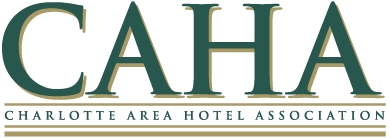Developers are rushing to open new hotels uptown and gearing up to start construction on more, betting that even as supply surges there’s enough demand from travelers to fill the hundreds of new rooms.
And long-simmering talk of a new, 1,000-room hotel – considered the gold standard for luring big conventions and mega-events – appears to be gaining momentum. Such a hotel, which could require a potentially controversial public subsidy, has long been a dream for Charlotte boosters.
Developer Johno Harris said this week that he thinks there’s enough room, and enough demand, for such a hotel at the huge new development Lincoln Harris is building on Stonewall Street.
“I think that Charlotte is at a stage in its career that the demand for a large convention hotel is there,” Harris told the Observer. “We’ve got the land. I think there’s a lot of opportunity to do that.”
Michael Smith, CEO of Charlotte Center City Partners, declined to comment specifically on what he’s hearing about a new convention hotel. But he agreed with Harris’ general premise.
“There has been interest expressed from the market to look at our center city,” said Smith.
Even without a single new mega-hotel, the growth of uptown’s hotel market has been dramatic, with about 1,000 new rooms set to open in a one-year span. That’s more than a 20 percent increase.
Almost 500 new rooms have been added uptown already this year, with the Embassy Suites, Springhill Suites and Ivey’s opening their doors. Another 217 rooms are coming this fall, when the new Kimpton opens next to Romare Bearden Park, and 300 more rooms will follow in early 2018 when the dual branded AC Hotel/Residence Inn by Marriott opens atop the EpiCentre.
After that, developers plan to start construction on another round of new hotels.
The Grand Bohemian, a 254-room luxury hotel on West Trade Street next to the Carillon building, is planning to break ground by the end of the year. A 270-room Intercontinental hotel is part of the Carolina Theatre renovation underway on North Tryon Street, expected to open in 2019. On Stonewall Station, a new Home2 Suites by Hilton that will add about 150 rooms could also start construction later this year.
“These construction booms on the hotel side come in waves,” said Vince Chelena, executive director of the Charlotte Area Hotel Association. “I think developers see they can make some money.”
“We’ve absorbed it pretty well, so far,” he said.
And it’s not just uptown that’s seeing more hotels. A 219-room Tru by Hilton/Hampton Inn & Suites broke ground last week near the airport. A 188-room Marriott hotel is opening next spring near Northlake Mall, and a 270-room Homewood Suites/Hilton Garden Inn is opening next month in SouthPark.
Figures from the Charlotte Regional Visitors Association show the new supply is starting to have an effect on occupancy. As of April, hotels in Mecklenburg County were averaging 70.2 percent occupied, down from 72.6 percent as of the same month last year.
But despite that, the average daily rate travelers paid was actually up slightly from 2016, reaching just over $113 a night. And revenue per available room, a key metric of health in the hotel market, was flat at just below $80 a night. That means that even though the number of rooms is going up, hotels aren’t lowering rates yet, because demand is still strong enough to make up for it.
Vinay Patel, president of SREE Hotels, opened a new Springhill Suites across from the Spectrum Center in April. He said that so far, the hotel is doing better than his company’s projections. And though Patel is keeping a wary eye on the number of new hotels hitting the market, he said business demand remains strong.
“Supply is definitely an issue, a concern, but the corporate transient market is sill pretty robust,” said Patel. “The fundamentals are still OK. Unless something really crazy happens and the fundamentals drop off, we’ll be OK.”
Tom Murray, head of the CRVA, agreed.
“A temporary flattening of occupancy doesn’t seem to be a main concern,” he said. “What we’re also seeing is still strong revenue growth. All in all, I’m comfortable with the market trends.”
A 1,000-room hotel?
Uptown’s hotel market has grown up with the city. From 1,676 rooms in 1985, the number of rooms had nearly tripled to 4,568 by 2015, according to Charlotte Center City Partners. There are now just over 5,000 hotel rooms uptown.
Right now the closest Charlotte has to a 1,000-room hotel is the Westin, with 700 rooms, which opened in 2003. The city invested about $16 million in the project.
Tom Murray, head of the CRVA, said the 150- to 300-room hotels that have made up most of the new supply in Charlotte so far don’t generate new demand, because they don’t have the meeting space and mega-blocks of rooms that help lure large conventions.
“They tend to use the existing demand,” said Murray. “They don’t bring demand generators like large meeting space.”
In recent years, Austin opened a 1,066-room Fairmont hotel, Houston added a 1,000-room Marriott Marquis and Boston announced a 1,000-room Omni Hotel.
“We’re falling behind them in large hotel development. We need another large, convention center hotel in our community,” said Murray.
Depending on the amount of public money involved, such a proposal could be controversial – just look at the dispute over public funding for a Major League Soccer stadium in Charlotte. The CRVA is also seeking about $100 million to renovate and upgrade the Charlotte Convention Center, adding more meeting spaces in addition the large exhibit halls.
Ely Portillo
Charlotte Observer
View the full article here





